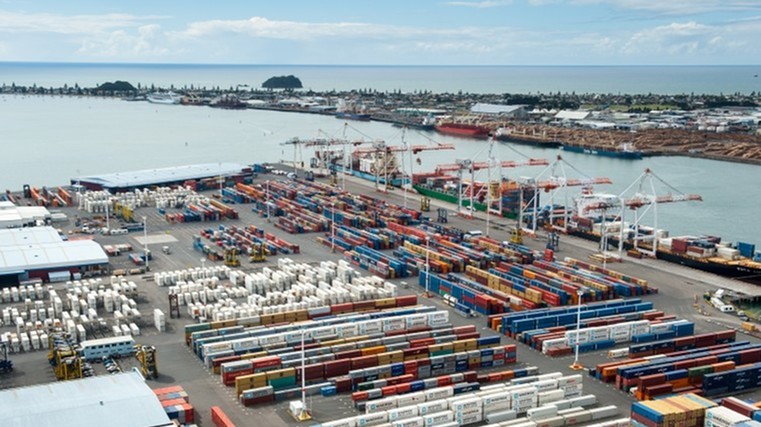Port of Tauranga announce record earnings

The Port of Tauranga today announced record annual earnings and the increase of freight volumes across the board. Among the results posted in their 2017 financial year results was a record container volume in excess of 1 million twenty-foot-equivalent units (TEU), a New Zealand first for any port. Total trade increased over 10 percent to 22.2 million tonnes. Net profit after tax for the 2017 financial year rose 7.9 per cent to $83.4 million, from $77.3 million the previous year. The result was lifted by a 13.8 per cent increase in container volumes to a record 1,085,987 TEU, as well as growth in log, dairy products and oil imports. Annual revenue rose 4.2 per cent to $255.9 million, up from $245.5 million, while Earnings before interest, tax, depreciation and amortization (EBITDA) increased 6.4 per cent, from $143.2 million last year to $152.4 million this year. Port land was revalued during the year increasing by $63 million reflecting the general increase in land values over the last two years. Port of Tauranga Chair David Pilkington says it has been a monumental year. “The successful completion of our dredging project in September was a turning point, as bigger vessels were able to call in New Zealand for the first time.” “As soon as the dredging was finished, larger vessels were introduced on Tauranga-only port calls,” he said. The capacity for the Port of Tauranga to accommodate these larger vessels has significantly contributed to this increase in volumes, the Port said. The Port’s strong financial results come the same day as Statistics New Zealand announced that the country has posted its first trade surplus for the month of July in five years. "July months are typically deficits," Stats NZ overseas trade manager Tehseen Islam said. "This is the first July surplus since 2012 ($98 million) and only the 11th July surplus since 1960.” While exports increased 17 per cent to $668 million for the month of July, imports also increased by 5.4 per cent to $232 million. The increase in vehicles, parts and accessories lead the import increase, showing 25 per cent growth, with a total value of $154 million. The annual deficit for July was $3.2 billion, down from $3.6 billion for the June 2017 year.





